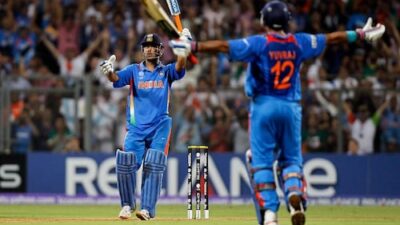The HC has prohibited police from taking any coercive action against officials from RCB and event partner DNA Entertainment Pvt Ltd until June 12 and scheduled the matter for further consideration that day.
In his petition, Sosale claimed he was arrested under orders from the Chief Minister.
RCB and DNA had approached the court contesting the FIR filed against them concerning the June 4 stampede, which happened during a celebratory event for RCB’s first IPL victory a day prior.
Justice S R Krishna Kumar scheduled the next hearing for June 12.
“There is a gentleman’s understanding — do not proceed until we’ve addressed the matter,” the judge warned the state government, cautioning against unnecessary arrests. The court also mentioned that the petition involving Sosale, who is already in custody, would be addressed separately at 10:30 am on June 10.
On Monday, Sosale’s attorney informed the court that the Central Crime Branch officials detained the RCB head because CM Siddaramaiah had ordered his arrest.
The RCB official was apprehended at Bengaluru Airport as he was en route to Dubai, based on an FIR filed following the stampede.
Sosale’s petition challenged the legality of his early morning arrest on June 6, claiming the police actions were influenced by political directives.
Justice Krishna Kumar, overseeing the case, concentrated on critical issues regarding jurisdiction, procedure, and the political influence that led to the arrest.
Sosale’s counsel, senior advocate Sandesh Chouta, argued that the arrest made at 4:30 am on June 6 lacked any legal justification.
“The first question is whether the chief minister directed the arrest? Secondly, did the police have authority to detain Sosale?” Chouta contended.
He asserted that the arrest was conducted by the Central Crime Branch (CCB), not the police unit responsible for the investigation. “The person being arrested must be informed of the reason and the identity of the arresting officer. None of this procedure was followed,” he argued.
“This arrest was not executed in connection with any investigation but merely due to directions from the chief minister,” Chouta claimed, asserting that there was no criminal intent (mens rea) in what was essentially a celebratory event that went awry.
Referencing the D K Basu ruling on arrest protocols, Chouta stated, “You cannot simply detain someone without informing them of the reasons. My client was with his wife and two-year-old child at the time. His Article 21 rights were violated,” the petitioner’s lawyer argued.
Chouta noted that by 2:30 pm on June 5, Karnataka had informed the court that the investigation had been handed over to the CID, thus raising questions about the CCB’s jurisdiction.
“How did the CCB become involved when the case was transferred to the CID? Even the remand request acknowledged CID’s primary role in the case,” Chouta stated.
Advocate General Shashikiran Shetty, representing the state, objected to the extensive arguments, stating they exceeded the original petition’s scope.
“None of this is included in Sosale’s pleadings. I require notice. This 38-page memo comprises much more than what’s outlined in the petition,” he remarked, emphasizing the need for time to respond.
When the judge inquired if the chief minister had explicitly stated that arrests would occur, the AG said he needed to verify and provide original records to the court.
Defending the arrest’s timing, Shetty explained, “Officials were simply performing their duties. It’s not like he was dining out; he was on his way to the international airport at 5 in the morning – what were they supposed to do?” The AG insisted that Sosale’s remand had already been carried out, rendering interim relief unnecessary. “An interim order cannot exceed the final order,” he stated.
Justice Krishna Kumar also questioned if any prima facie evidence existed at the time of Sosale’s arrest. Citing a Supreme Court ruling from the Arnab Goswami case, the judge remarked that interim bail can be granted in the absence of such evidence.
The judge noted: “Disregarding the CID momentarily – records state Cubbon Park Police transferred the case to Ashok Nagar Police, which then contacted the CCB to enact the arrest. The key issue is, once the case was handed over to the CID, did anyone else have jurisdiction?” Royal Challengers Sports Limited (RCSL), the owner of RCB, has claimed it was falsely implicated in the case.
RCSL maintains it was clear on social media that only a limited number of passes were available and that pre-registration was necessary for entry, even for free passes.
It alleged that while stadium gates were supposed to open at 1:45 pm, they were not opened until 3 pm, causing a crowd surge.
DNA stated in its petition that the incident was due to the police’s failure in crowd management, claiming that most police personnel were assigned to Vidhana Soudha, leaving the stadium understaffed despite a large crowd.



